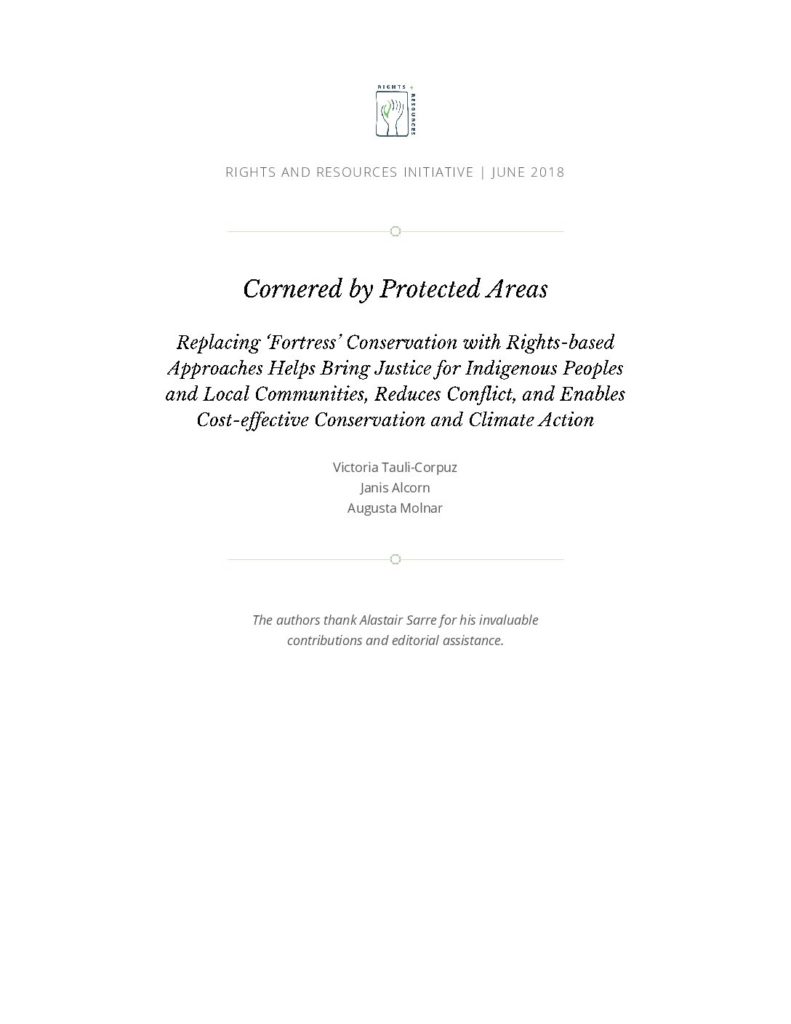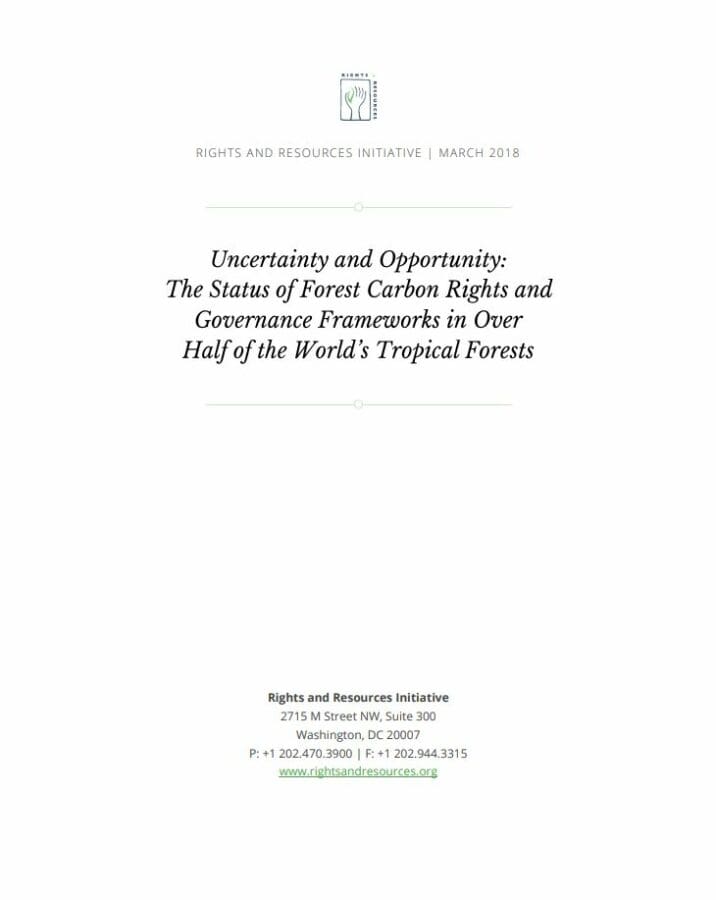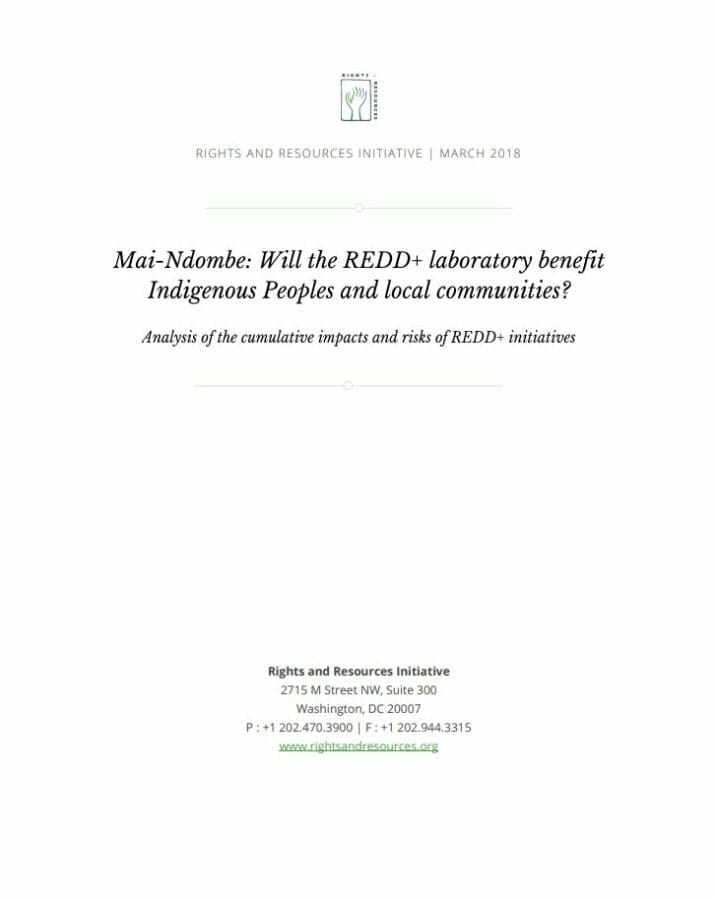If properly leveraged, natural climate solutions can contribute over 37% of cost-effective CO2 mitigation by 2030. Evidence shows Indigenous Peoples and local communities are key to achieving such outcomes. This report presents the most comprehensive assessment to date of carbon storage in documented community lands worldwide.
At a Crossroads: Consequential Trends in Recognition of Community-Based Forest Tenure from 2002-2017
This analysis reports on trends in global forest tenure from 2002-2017. It is the fourth in a series of analyses monitoring the legal recognition of forest tenure around the world.
Despite widespread poverty and insecure resource rights, evidence shows that Indigenous Peoples and local communities are still spending their limited resources on conservation efforts. They are also achieving outcomes that are at least equivalent to those of government-funded protected areas. This brief shows an urgent need to replace the fortress-conservation model with rights-based approaches to both improve conservation outcomes and end human-rights abuses committed in the name of conservation.
This brief presents a review of the nominal progress made in the national-level laws and regulations that govern the carbon trade and define the rights of parties—across a sample of 24 countries in Africa, Asia and Latin America. These countries collectively hold more than 50 percent of global tropical and subtropical forests.
This study assesses the cumulative risks and impacts of all REDD+ initiatives in the DRC province of Mai-Ndombe on the rights and subsistence of local communities and Indigenous Peoples. Using existing tools while taking into account gray areas in the REDD+ process, the study maps all existing and planned REDD+ initiatives in the province.
This brief highlights key attributes of national constitutions, laws, and regulations that play a fundamental role in protecting indigenous and rural women’s rights to community forests and other community lands. These legislative best practices were derived from a 2017 analysis of over 400 national laws and regulations, Power and Potential, which evaluates the extent to which women’s rights to community forests are recognized by national law in 30 low- and middle-income countries (LMICs) across Africa, Asia, and Latin America.





